
Douz: The Gateway to the Sahara
Douz, a charming oasis town in southern Tunisia, is often referred to as the 'Gateway to the Sahara'. Nestled at the edge of the vast and mesmerizing Sahara Desert, Douz is a must-visit for those seeking an authentic desert experience. The town is famous for its palm groves, which provide a lush, green contrast to the surrounding arid landscape. Each year, Douz hosts the International Festival of the Sahara, a vibrant celebration of traditional desert culture. During this event, visitors can witness camel racing, folk music, and the unique art of sand sculpting. It is a perfect opportunity to immerse oneself in the rich heritage and customs of the region. A visit to Douz is incomplete without a camel trek into the Sahara. Whether you opt for a short ride or an overnight adventure, the experience of traversing the dunes and sleeping under the star-studded sky is unforgettable. The nearby Chott el Jerid, a vast salt lake, offers a surreal landscape that is best explored during sunrise or sunset when the light creates a magical reflection on its surface.
Local tips in Douz
- Visit during the International Festival of the Sahara in December for a unique cultural experience.
- Pack light, breathable clothing and plenty of water to stay comfortable in the desert heat.
- Consider hiring a local guide for a more informative and safe desert trek.
- Bring a camera to capture the stunning desert landscapes and the vibrant festival atmosphere.
- Try local delicacies like couscous and dates, which are staples of the region's cuisine.
Douz: The Gateway to the Sahara
Douz, a charming oasis town in southern Tunisia, is often referred to as the 'Gateway to the Sahara'. Nestled at the edge of the vast and mesmerizing Sahara Desert, Douz is a must-visit for those seeking an authentic desert experience. The town is famous for its palm groves, which provide a lush, green contrast to the surrounding arid landscape. Each year, Douz hosts the International Festival of the Sahara, a vibrant celebration of traditional desert culture. During this event, visitors can witness camel racing, folk music, and the unique art of sand sculpting. It is a perfect opportunity to immerse oneself in the rich heritage and customs of the region. A visit to Douz is incomplete without a camel trek into the Sahara. Whether you opt for a short ride or an overnight adventure, the experience of traversing the dunes and sleeping under the star-studded sky is unforgettable. The nearby Chott el Jerid, a vast salt lake, offers a surreal landscape that is best explored during sunrise or sunset when the light creates a magical reflection on its surface.
When is the best time to go to Douz?
Iconic landmarks you can’t miss
El Mouradi Douz
Discover luxury and adventure at El Mouradi Douz, your gateway to the enchanting Sahara Desert in Tunisia.

Sahara Desert Tunisia ღ
Discover the breathtaking Sahara Desert in Tunisia, where adventure meets tranquility amidst the golden dunes and rich cultural heritage.
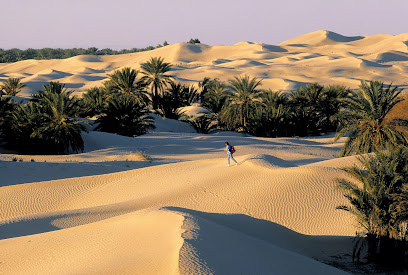
Souk Douz
Explore Souk Douz, a vibrant market in Douz, Tunisia, where culture, crafts, and local cuisine converge in a lively atmosphere.
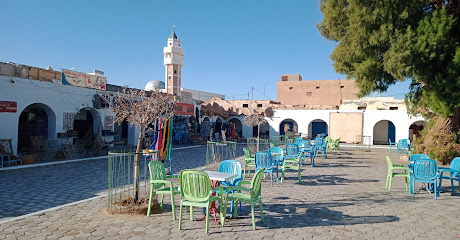
La Porta del Sahara
Discover La Porta del Sahara in Douz, Tunisia—a breathtaking gateway to the Sahara Desert, rich in culture, adventure, and stunning landscapes.
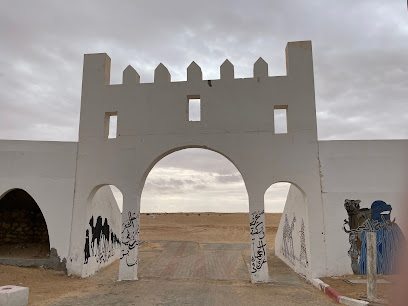
Douz Museum
Explore the Douz Museum for a deep dive into the Sahara's ancient history and vibrant cultures through fascinating artifacts and exhibits.
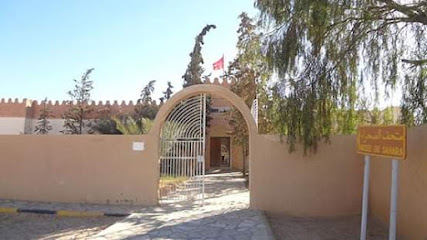
Sahara Museum
Explore the Sahara Museum in Douz, where the stories of the desert come alive through captivating exhibits and rich cultural heritage.
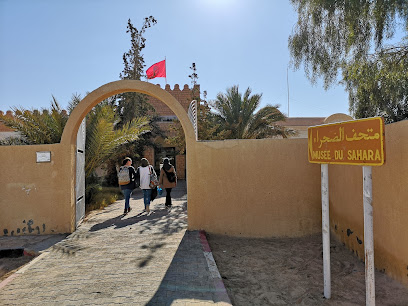
Douz Viehmarkt donnerstags
Explore the vibrant Douz Viehmarkt on Thursdays - a cultural hub of crafts, cuisine, and local traditions in the heart of the Sahara.
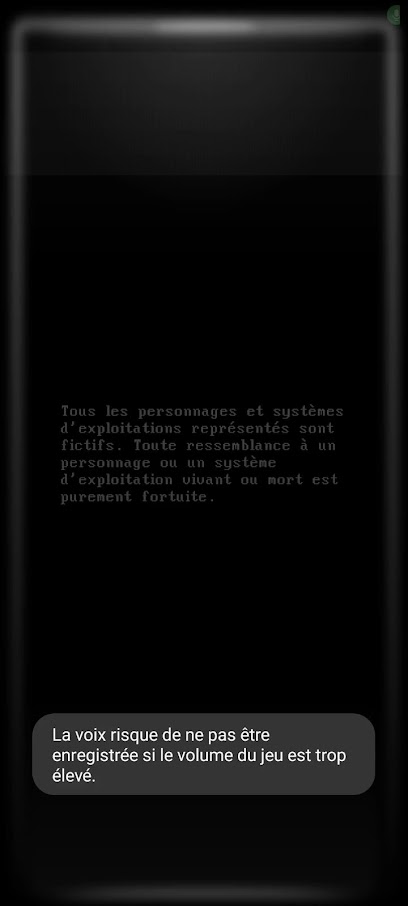
Unmissable attractions to see
Douz Museum
Explore the Douz Museum: A hidden gem showcasing the rich heritage and culture of Tunisia's desert dwellers through diverse artifacts and exhibits.
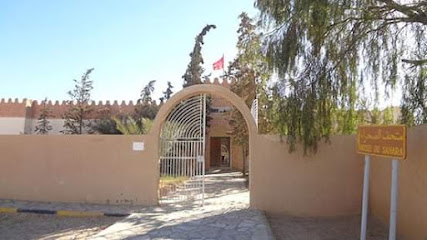
Sahara
Discover the Sahara Desert's breathtaking landscapes and unique cultural experiences, perfect for hiking and unforgettable adventures under the open sky.
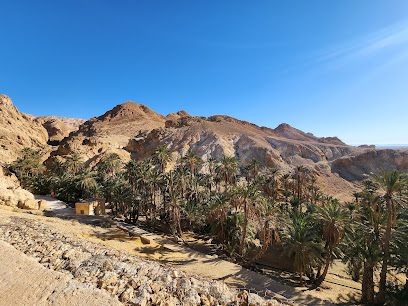
Douz Camel Tours
Explore the Sahara Desert with Douz Camel Tours, offering unforgettable camel rides and immersive local experiences in Tunisia's captivating landscapes.
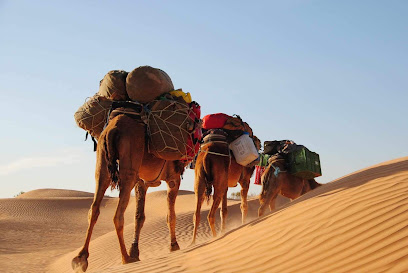
Sahara 2020
Explore the breathtaking Sahara 2020 in Douz, Tunisia, a desert park offering stunning landscapes and rich cultural experiences.
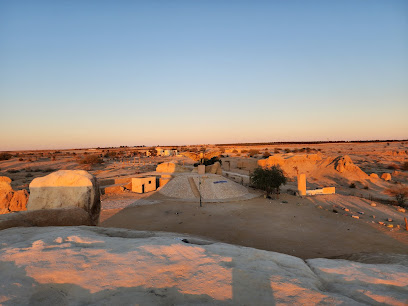
Explora Sands
Discover the breathtaking beauty of Explora Sands, a stunning tourist attraction in Ghlissia, perfect for nature lovers and adventure seekers.

صحراء
Discover the majestic Sahara Desert, a captivating blend of breathtaking landscapes, rich culture, and adventure waiting for every traveler.

مخيم آدم مهرجان الرحالة
Experience the vibrant Douz Festival of the Sahara, where culture, tradition, and the allure of the desert come alive in a breathtaking celebration.
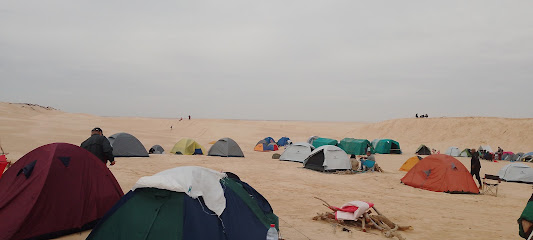
Old Zafrane village
Explore Old Zafrane Village, a hidden gem in Douz, where tradition meets the breathtaking beauty of the Sahara Desert.

غابة الناجي بن عبدالقادر
Discover the serene beauty and cultural depth of Ghabat Al-Naji Bin Abdalqader, a captivating forest retreat in Al-Qalah, Tunisia.

Espace Paradise Events
Experience the vibrant culture and traditions of Tunisia at Espace Paradise Events in Douz, a gateway to the Sahara's rich heritage.

Douz Viehmarkt donnerstags
Discover the vibrant Douz Camel Market, a cultural gem in Tunisia where tradition meets the thrill of the Sahara's rich heritage.
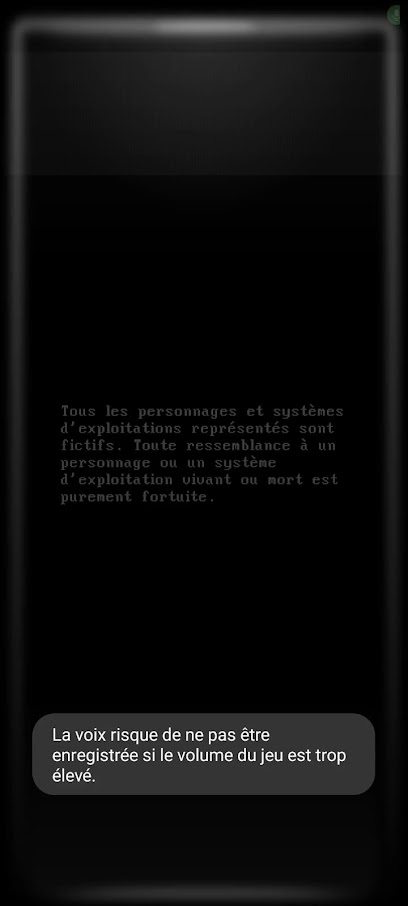
ثابت للبركة
Discover the serene beauty of Thabet Lil Berka in Douz, a tranquil park perfect for relaxation amidst Tunisia's stunning landscapes.

الاببار
Explore Alabbar in Jamnah: A breathtaking tourist destination blending history and culture in the heart of Tunisia.

assotourism.sud
Discover Douz, the vibrant gateway to the Sahara, where culture, adventure, and breathtaking landscapes await every traveler.

Les Méharées de Nabil
Explore the magical desert landscapes and vibrant Berber culture at Les Méharées de Nabil, a unique Tunisian tourist attraction.

Essential places to dine
Sun Palm Douz
Discover unparalleled comfort at Sun Palm Douz - your gateway to unforgettable Sahara adventures in Tunisia.

Sahara Douz
Discover Sahara Douz: A gateway to adventure in Tunisia's stunning Sahara Desert with rich culture and breathtaking landscapes.

El Mouradi Douz
Discover unparalleled comfort at El Mouradi Douz – your gateway to the majestic Sahara Desert and authentic Tunisian experiences.

Restaurant ElBey
Experience authentic Tunisian cuisine at Restaurant ElBey in Douz – where tradition meets taste in every dish.
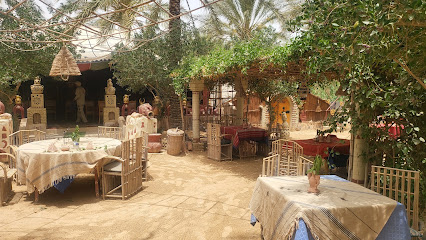
Restaurant La Porte De Sahara
Experience the authentic flavors of Tunisia at Restaurant La Porte De Sahara in Douz – where every dish tells a story.
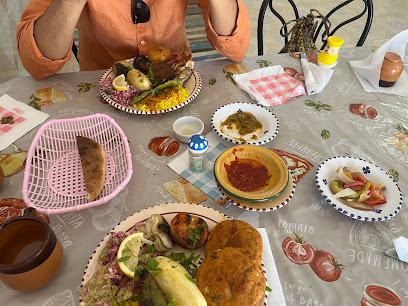
Restaurant Les Palmiers
Experience authentic southern Tunisian cuisine at Restaurant Les Palmiers in Douz - a culinary treasure with warm hospitality.
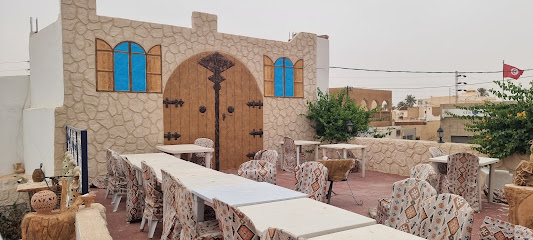
Souk Douz
Discover the bustling heart of Douz at Souk Douz—a vibrant market showcasing authentic Tunisian crafts and culinary delights.
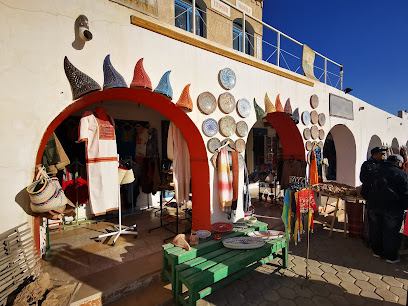
Hôtel 20 mars
Discover traditional Tunisian hospitality at Hôtel 20 Mars in Douz - your gateway to Sahara adventures!

Camping Club Desert
Discover Camping Club Desert: Your Gateway to Adventure in the Heart of the Sahara!
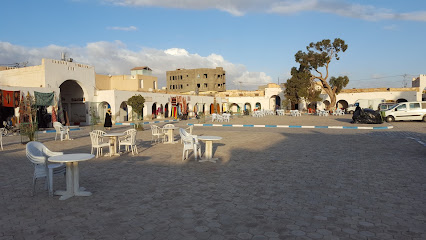
TEJ ELKHAYEM
Discover authentic Tunisian cuisine at Tej Elkhayem in Douz - where every meal is a celebration of local flavors.
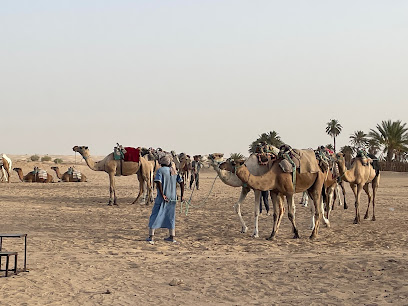
casa catering
Discover authentic Tunisian flavors at Casa Catering in Douz - where every dish tells a story.
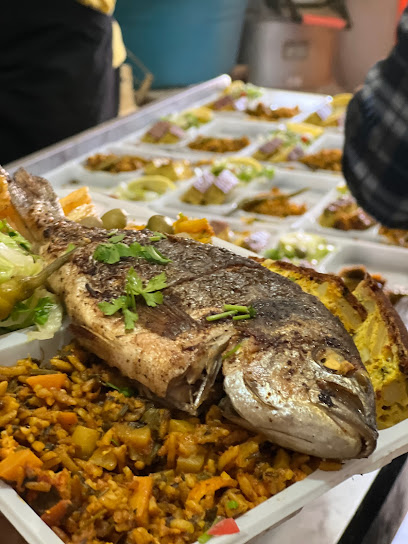
Murmure de Civilisations
Discover tranquility at Murmure de Civilisations in Douz - your gateway to authentic Tunisian hospitality and breathtaking Sahara adventures.
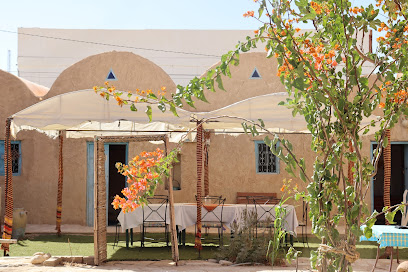
Tente ElBey
Experience authentic Tunisian hospitality at Tente ElBey - your cozy indoor lodging in beautiful Zaafrane.

Cafe Sahara
Discover the essence of Tunisian cuisine at Cafe Sahara in Douz - where every dish tells a story amidst stunning desert views.
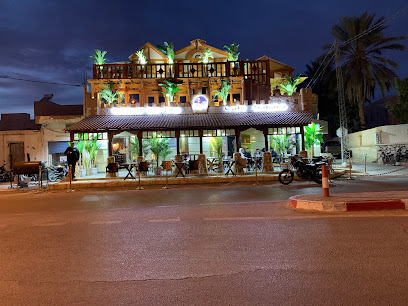
Restaurant Dyar Zmen
Experience authentic Tunisian flavors at Restaurant Dyar Zmen in Douz - a culinary gem showcasing local dishes and warm hospitality.
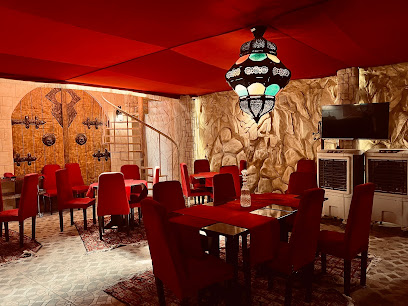
Markets, malls and hidden boutiques
Souk Douz
Explore Souk Douz, a vibrant market in Tunisia filled with local crafts, spices, and authentic Tunisian cuisine, offering a unique cultural experience.
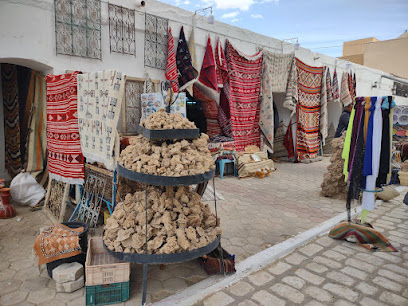
Carrefour DOUZ
Discover a blend of local flavors and international brands at Carrefour DOUZ, the ultimate shopping destination in Douz, Tunisia.
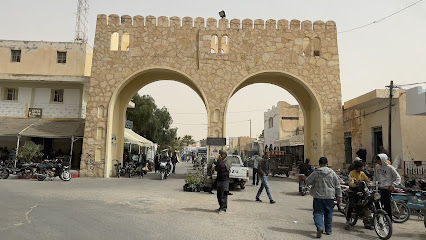
Leynoulina boutique
Explore Leynoulina Boutique in Douz for unique women's clothing that fuses modern trends with traditional Tunisian craftsmanship.
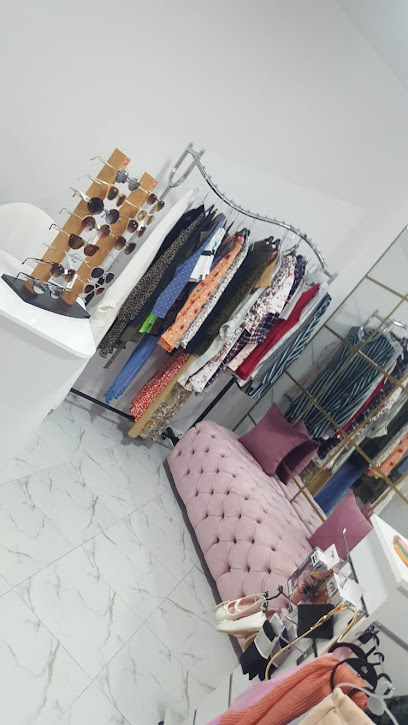
King Of Dates
Discover the sweetness of Tunisia at King of Dates in Douz, where exquisite dates and local delicacies await your taste.
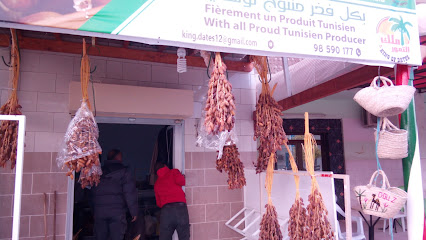
la casa plus
Discover the serene charm of La Casa Plus, Douz's inviting coffee shop offering delightful beverages and a taste of local culture.
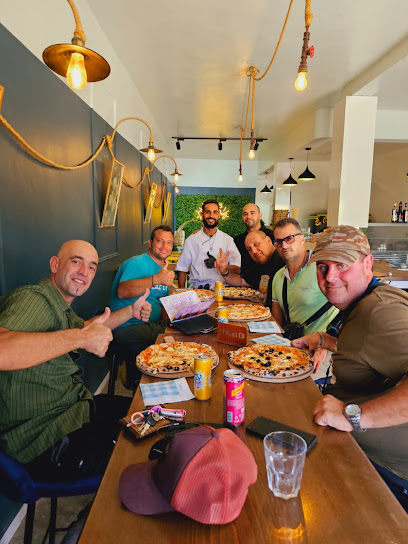
Dattes Douz
Explore the rich flavors of Tunisia at Dattes Douz, the premier destination for authentic dates and local delicacies.
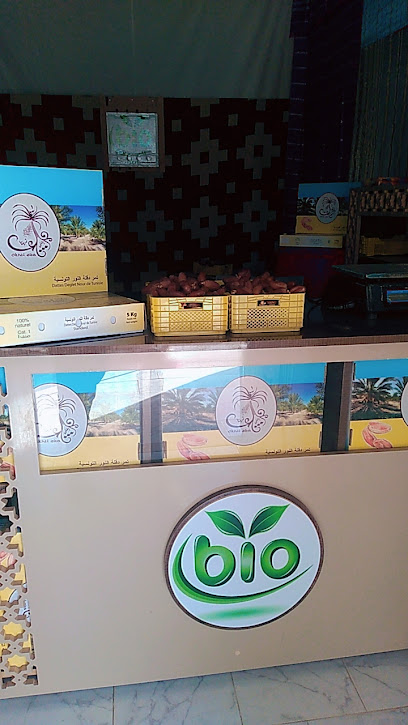
Boutique AHMED
Discover the unique charm of Boutique AHMED in Douz, where traditional Tunisian fashion meets contemporary style for every traveler.

Favori
Explore Favori in Douz for exquisite women's clothing and unique accessories that celebrate style and local craftsmanship.

Douz-21
Explore Douz-21 Gift Shop in Douz for authentic Tunisian crafts and souvenirs, celebrating the rich culture and artistry of this enchanting destination.

Dattes Dhafer
Explore the rich flavors of Tunisia at Dattes Dhafer, where the finest dates and local delicacies await in the heart of Douz.

Chi7a Store
Explore the latest in mobile technology at Chi7a Store, Douz’s premier cell phone destination for tourists and locals.
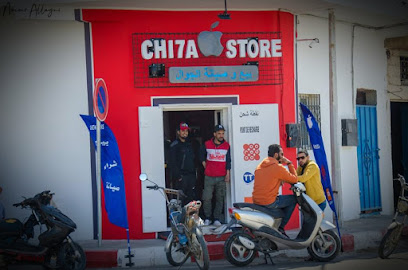
بوابة الصحراء للوازم الخياطة
Explore Douz's rich textile heritage at بوابة الصحراء للوازم الخياطة, where vibrant fabrics and traditional crafts await your discovery.
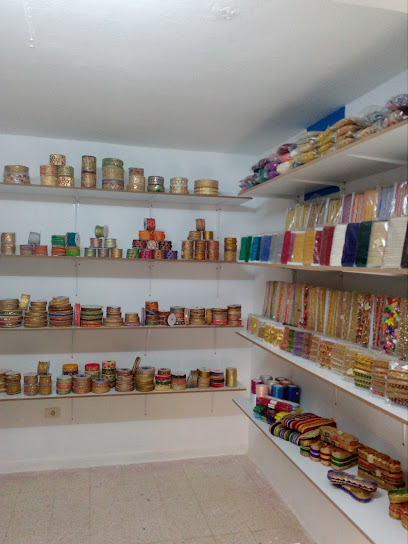
Marché traditionnel
Discover the essence of Tunisian culture at Marché Traditionnel, where unique gifts and vibrant atmosphere await every traveler.
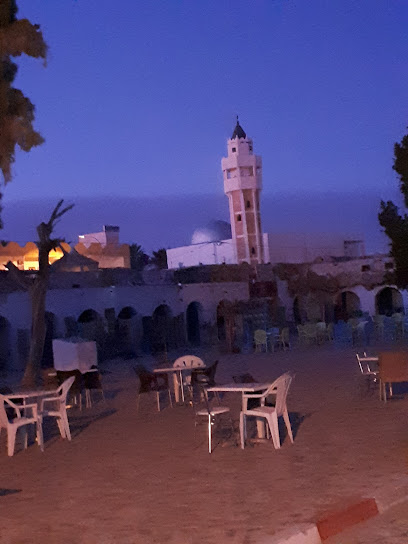
Summer Moon ABAYA By Chem Douz
Explore Summer Moon ABAYA By Chem Douz for authentic Tunisian gifts and unique handcrafted treasures that capture the spirit of the Sahara.
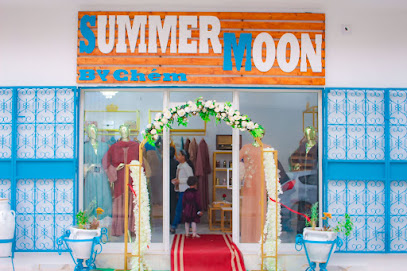
BOUTIQUE LAND MARK FASHION
Explore the vibrant styles of Tunisian fashion at Boutique Land Mark Fashion in Douz, a must-visit for unique and stylish clothing.
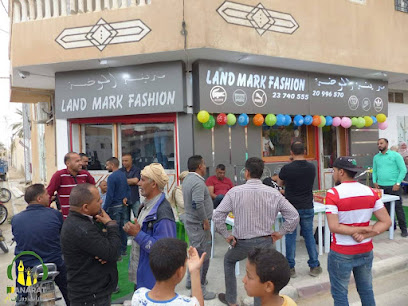
Essential bars & hidden hideouts
Restaurant La Porte De Sahara
Discover Restaurant La Porte De Sahara in Douz for an authentic taste of Tunisian cuisine, where every dish tells a story of the Sahara.
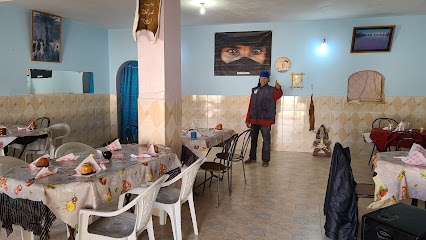
Restaurant Les Palmiers
Discover the flavors of Tunisia at Restaurant Les Palmiers, a culinary gem in Douz offering authentic dishes and a welcoming atmosphere.
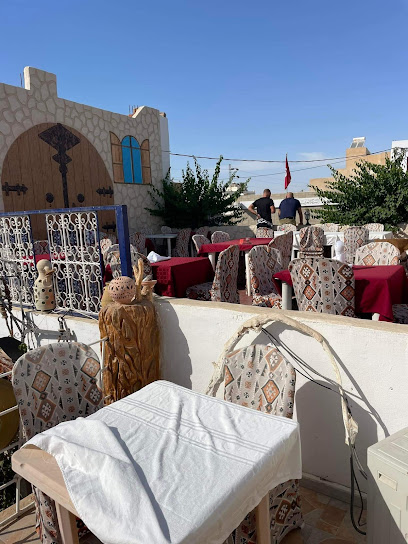
Cafe Sahara
Experience authentic Tunisian cuisine at Café Sahara, where traditional flavors meet the serene beauty of Douz.
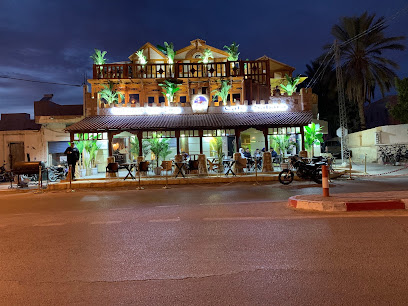
Restaurant Errimel
Explore the authentic flavors of Tunisia at Restaurant Errimel in Douz, where tradition meets taste in a vibrant atmosphere.
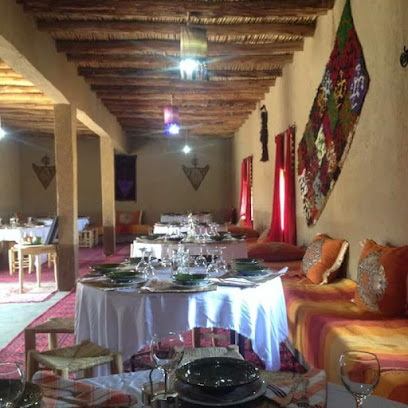
Orientale Pizza Et Grillade
Discover the rich flavors of Tunisia at Orientale Pizza Et Grillade, a dining experience that blends tradition with deliciousness in the heart of Douz.
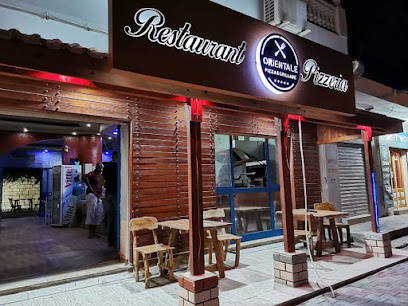
Restaurant pizza Venezia
Savor the authentic taste of Italian pizza at Pizza Venezia, a family-friendly restaurant in the heart of Douz, perfect for all ages.
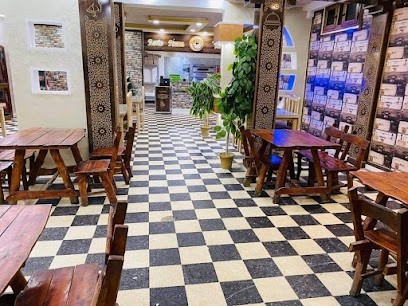
Vero gusto
Experience the authentic taste of Italy at Vero Gusto, a top-rated pizza restaurant in Douz, renowned for its fresh ingredients and delightful atmosphere.
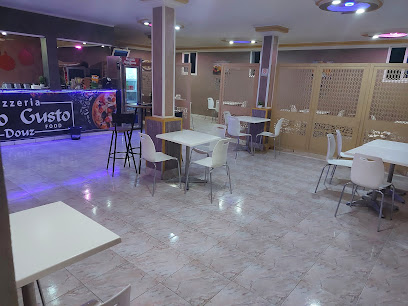
Magic food
Discover the flavors of Tunisia at Magic Food, a family-friendly restaurant in Douz offering traditional dishes and a welcoming atmosphere.
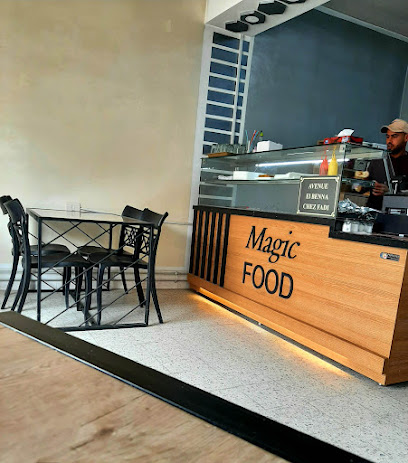
Café Clasico , Douz
Experience the essence of Tunisian culture at Café Clasico in Douz, where authentic flavors and a welcoming atmosphere await every visitor.
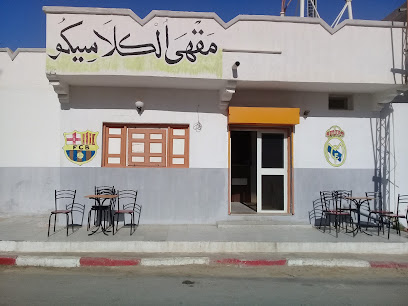
Restaurant atef
Discover the authentic flavors of Tunisia at Restaurant Atef in Douz, where traditional dishes meet warm hospitality.
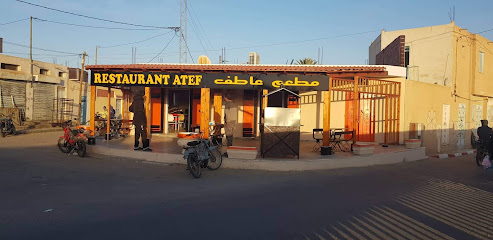
Pizzeria Restaurant Marina
Experience authentic Italian cuisine at Pizzeria Restaurant Marina in Douz, where delicious pizza meets the charm of Tunisia's desert gateway.

sahara
Experience the breathtaking beauty and rich culture of the Sahara Desert, where every dune tells a story and adventure awaits.
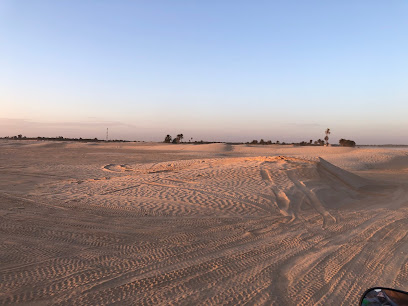
Le_Bon_Jour_12
Experience the delightful fast food flavors of Douz at Le Bon Jour, where local taste meets quick service for a satisfying meal.
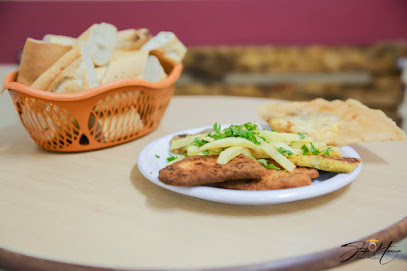
Tabac mariem
Discover the heart of Douz at Tabac Mariem, a cozy bar tabac offering traditional Tunisian drinks and snacks in a welcoming atmosphere.

Dar Ali baba
Discover the authentic flavors of Tunisia at Dar Ali Baba, a must-visit restaurant in Douz offering a delightful dining experience.
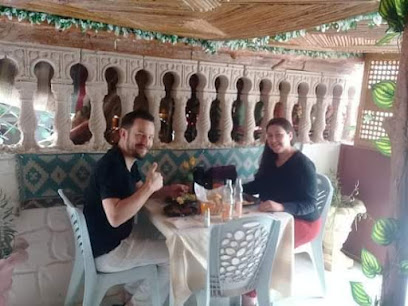
Local Phrases about Douz
-
- Helloمرحبا
[marhaba] - Goodbyeوداعا
[wada'an] - Yesنعم
[naam] - Noلا
[la] - Please/You're welcomeمن فضلك
[min fadlik] - Thank youشكرا
[shukran] - Excuse me/Sorryعذرا
['udhran] - How are you?كيف حالك؟
[kayfa haluk?] - Fine. And you?بخير. وأنت؟
[bikhayr. wa anta?] - Do you speak English?هل تتكلم الإنجليزية؟
[hal tatakallam al'injlizia?] - I don't understandأنا لا أفهم
[ana la afham]
- Helloمرحبا
-
- I'd like to see the menu, pleaseأريد أن أرى القائمة، من فضلك
[uridu an ara alqaimah, min fadlik] - I don't eat meatأنا لا أأكل اللحم
[ana la aakul allahm] - Cheers!في صحتك!
[fi sahtik!] - I would like to pay, pleaseأريد أن أدفع، من فضلك
[uridu an adfa'a, min fadlik]
- I'd like to see the menu, pleaseأريد أن أرى القائمة، من فضلك
-
- Help!النجدة!
[annajdah!] - Go away!إرحل!
[irhal!] - Call the Police!اتصل بالشرطة!
[atassil bialshurta!] - Call a doctor!اتصل بالطبيب!
[atassil bialtabib!] - I'm lostلقد ضللت
[laqad dalalt] - I'm illأنا مريض
[ana mareed]
- Help!النجدة!
-
- I'd like to buy...أريد أن أشتري...
[uridu an ashtari...] - I'm just lookingأنا فقط أتفرج
[ana faqat atafarraj] - How much is it?بكم هذا؟
[bi kam hadha?] - That's too expensiveهذا غالي جدا
[hadha ghali jiddan] - Can you lower the price?هل يمكنك خفض السعر؟
[hal yumkinuk khafd als'ar?]
- I'd like to buy...أريد أن أشتري...
-
- What time is it?كم الساعة؟
[kam alsaa'ah?] - It's one o'clockالساعة الواحدة
[alsaa'ah alwaahidah] - Half past (10)النصف بعد (10)
[alnisf ba'd (10)] - Morningصباح
[sabah] - Afternoonبعد الظهر
[ba'd aldhuhur] - Eveningمساء
[masa'] - Yesterdayأمس
[ams] - Todayاليوم
[alyawm] - Tomorrowغدا
[ghadan] - 1واحد
[wahid] - 2اثنان
[ithnan] - 3ثلاثة
[thalatha] - 4أربعة
[arba'a] - 5خمسة
[khamsa] - 6ستة
[sitta] - 7سبعة
[saba'a] - 8ثمانية
[thamania] - 9تسعة
[tasia'a] - 10عشرة
[ashara]
- What time is it?كم الساعة؟
-
- Where's a/the...?أين هو/هي...؟
[ayn huwa/hiya...?] - What's the address?ما هو العنوان؟
[ma huwa al'unnwan?] - Can you show me (on the map)?هل يمكنك أن تريني (على الخريطة)؟
[hal yumkinuk an tureeni (ala alkhareetah)?] - When's the next (bus)?متى القادم (الحافلة)؟
[mata alqadim (alhafilah)?] - A ticket (to ....)تذكرة (إلى ...)
[tazkirah (ila ...)]
- Where's a/the...?أين هو/هي...؟
History of Douz
-
Douz, often referred to as the 'Gateway to the Sahara,' has a rich history that dates back thousands of years. It was originally inhabited by Berber tribes who utilized the region's oases to sustain their nomadic lifestyle. These tribes were known for their intricate knowledge of the desert landscape and their ability to thrive in such a harsh environment.
-
During the Roman Empire, Douz became a part of the Roman province of Africa. The Romans recognized the strategic importance of Douz's location and its oases. They established trade routes that passed through Douz, facilitating commerce between the Mediterranean coast and sub-Saharan Africa. Remnants of Roman roads and artifacts have been discovered in the area, attesting to this period of influence.
-
In the 7th century, the Islamic conquest brought significant changes to Douz. The introduction of Islam led to the establishment of mosques and schools, and the town began to integrate into the broader Islamic world. This period also saw the rise of the trans-Saharan trade, with caravans transporting goods such as gold, salt, and slaves through Douz.
-
The Ottoman Empire extended its reach to Tunisia in the 16th century, and Douz came under Ottoman control. The Ottomans established a more structured administration and fortified the town to protect it from tribal conflicts and raids. The period of Ottoman rule brought relative stability and prosperity to Douz, allowing it to flourish as a center of trade and culture.
-
In 1881, Tunisia became a French protectorate, and Douz fell under French colonial administration. The French introduced modern infrastructure, including roads and schools, but their rule was also marked by economic exploitation and cultural imposition. Despite this, Douz maintained its unique cultural identity, blending traditional Berber, Arab, and French influences.
-
Tunisia gained independence from France in 1956, and Douz became part of the newly formed Republic of Tunisia. In the decades that followed, Douz has developed into a popular tourist destination, known for its annual International Festival of the Sahara. This event celebrates the rich cultural heritage of the region, featuring traditional music, dance, and crafts.
-
Douz is renowned for its deep-rooted cultural traditions. The town is famous for its craftsmanship, particularly the making of traditional Berber carpets and silver jewelry. The local cuisine, which includes dishes like couscous and mechoui, reflects the blend of Berber, Arab, and Mediterranean influences. Douz's cultural festivals and markets offer a vibrant glimpse into the town's diverse heritage.
-
Douz is surrounded by breathtaking natural landscapes, including the vast expanse of the Sahara Desert. The town's oases, such as the Great Erg Oriental, provide a stark contrast to the arid desert, offering lush greenery and a haven for local wildlife. Visitors can explore the desert on camel treks, experiencing the timeless beauty of the dunes and the serenity of the star-filled night sky.
Douz Essentials
-
Douz is located in southern Tunisia, often referred to as the 'Gateway to the Sahara.' The nearest major airport is Djerba-Zarzis International Airport, approximately 125 kilometers away. From Djerba, you can take a taxi or a bus to Douz. The journey typically takes around 2 to 3 hours by road. Alternatively, you can fly into Tunis-Carthage International Airport and take a domestic flight to Tozeur-Nefta International Airport, followed by a 2-hour taxi ride to Douz.
-
Douz is a small town, and many of its attractions are within walking distance. For longer trips, taxis are readily available and relatively inexpensive. There is also a local bus service that connects Douz to nearby towns and villages. If you prefer more flexibility, renting a car is a convenient option for exploring the surrounding desert landscape at your own pace. Camel rides and 4x4 tours are popular for desert excursions.
-
The official currency in Tunisia is the Tunisian Dinar (TND). Credit cards are accepted in some hotels, restaurants, and shops, but it is advisable to carry cash, especially in smaller establishments and rural areas. ATMs are available in Douz, but it is wise to withdraw sufficient cash before traveling to ensure you have enough funds for your visit.
-
Douz is generally a safe destination for tourists. However, it is advisable to take standard precautions. Avoid walking alone at night in unfamiliar areas and keep an eye on your belongings in crowded places. While there are no specific high-crime areas targeting tourists, it is always best to stay vigilant and aware of your surroundings. Petty theft can occur, so use hotel safes to store valuables.
-
In case of emergency, dial 197 for the police or 190 for medical emergencies. The local police station and medical facilities are available in Douz. It is recommended to have travel insurance that covers medical emergencies. For minor health issues, there are pharmacies in the town where you can purchase over-the-counter medications.
-
Fashion: Do dress modestly, especially when visiting religious sites. Avoid wearing revealing clothing. Religion: Do respect local customs and traditions. When visiting mosques, ensure that you are dressed appropriately and remove your shoes before entering. Public Transport: Do be respectful and give up your seat to elderly passengers. Don't eat or drink on public transport. Greetings: Do greet people with a handshake. A slight bow of the head is also a sign of respect. Eating & Drinking: Do try local delicacies and accept food offerings graciously. Don't refuse hospitality, as it is considered impolite.
-
To experience Douz like a local, visit the weekly market held every Thursday, where you can buy fresh produce, spices, and traditional Tunisian goods. Engage with locals, as they are often friendly and willing to share stories about the town's history and culture. Don't miss the annual International Festival of the Sahara, which showcases traditional music, dance, and camel racing. For a unique experience, take a sunset camel ride into the Sahara Desert, offering breathtaking views and an unforgettable adventure.
Nearby Cities to Douz
-
Things To Do in Djerba
-
Things To Do in Sfax
-
Things To Do in Sousse
-
Things To Do in Monastir
-
Things To Do in Sabratha
-
Things To Do in Hammamet
-
Things To Do in Tunis
-
Things To Do in Constantine
-
Things To Do in Tripoli
-
Things To Do in Annaba
-
Things To Do in Bizerte
-
Things To Do in Setif
-
Things To Do in Leptis Magna
-
Things To Do in Bejaia
-
Things To Do in Zliten








